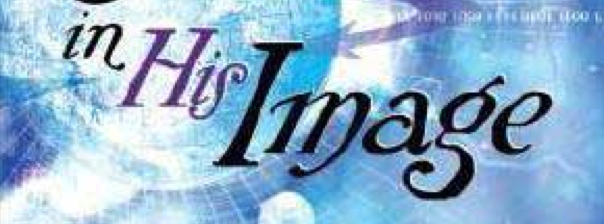
I have a special request of my readers: please read the entire essay before assuming certain conclusions. This is one of my most vulnerable pieces. I offer these thoughts as a fellow-learner, the judge of no one’s heart and the (moment-by-moment) recipient of God’s mercy in Christ.
“Gender is a social construction.” (A 1970s and 1980s mantra on most public universities)
“[Heterosexual] Intercourse is socially-sanctioned rape” (Andrea Dworkin)
“A woman is only complete when serving her husband.” (Amish saying)
“Gender is fluid and our laws should reflect changing preferences.” (A California legislator commenting on a law that allows students to choose any bathroom based on their current perception of gender.)
“I have a right to sex without consequences.” (A Silicon Valley entrepreneur to author in 2008)
“How dare you deprive any person of a loving relationship! Your are a symbol of hate.” (A stranger speaking to the author in a forum supporting traditional marriage in California Proposition 8)
“Christianity has not been tried an found wanting. It has been found difficult and rarely tried.” (G.K. Chesterton)
A Culture of Confusion
From employment applications to income taxes, from plane tickets to passports, DNA tests and the “gender assigned at birth,” there are two categories that traditionally categorize humankind: Female and Male. Yet the Western (and increasingly, the globally connected) world(s) are locked in fierce battles over gender identity. Without exaggeration, we are moving toward “50 shades of gender.”
Anyone affirming the “simplistic” position of one humanity-two genders is now publicly denigrated. LGBTQ activists, drawing upon previous generations’ marginalization (and terrible persecution) of their preferences, have capitalized on their oppressed status and created a climate that marginalizes the deepest convictions of many religions and societies. Biblically thoughtful Christians find themselves in crossfire between compassion and conviction, pluralistic public policy and principled ideals in the faith community. (And why does Islam get a “pass” from Western progressives for their misogyny and oppression of gays?)
Biblical anthropology affirms the egalitarian unity and uniqueness of women and men (Gen. 1:26-28; 5:1-2; Gal. 3:28ff). The Bible’s narrative descriptions of the functions, roles and status of women and men are not theological prescriptions. Too often in church history, the stories of fallen human cultures have perverted the Creator’s intent (Mt. 19). Conversely, the Scriptures are replete with inspiring poetry, prophecy and story extolling the virtues of women and men that fear the Lord and serve their neighbor.
Gender confusion is part of the fall. As such, it calls for compassion and courage, holiness and humility as we sort out godly responses. It is vital for thoughtful followers of Jesus not to be swayed by either narrow Biblicism (in which our interpretation of texts fails to unlock the richness of those texts) or facile scientism that declares, “the debate is over” while referencing very biased studies.1
We must discern the difference between Scriptural precept, pastoral care and public policy. Christians are deeply divided concerning the church’s strategies for public influence. They often alternate between fundamentalist and progressive disengagement and conservative and liberal activism. Gender identity and the correlating issues of family structure, the nurture of children and the roles of church and state are critical to the future our communities and the planet. A mediating prophetic position allows for moral and spiritual suasion on legislation while accepting “internal exile” when the culture refuses to listen to truth.
How do we properly interpret the Bible and listen to the Spirit concerning kingdom understanding of gender?
Sorting it out
We are human beings made in God’s image with a job to do. We fulfill our calling as men and women. The most important thing about a person is their dignity and worth as a human being. This is prior to their current perceptions of orientation! One of the tragedies of the past 40 years is reducing human persons to their erotic proclivities and missing all the other facets of their being that make them gifts to God’s world.
The Scriptures are not ambiguous about gender identity and sexual behavior, even if they do not address in detail why people feel the way they do. From Creation to Consummation, sexual intimacy is ideally experienced in an exclusive, heterosexual, life-long monogamous relationship that is symbolic of God’s deep love for his people (Hosea; Eph. 5:18-33; Rev. 19). Simply stated, single men and women are called to celibacy and married couples to fidelity. Singleness is not a defect or deficiency, but a state of being that itself anticipates the fullness of the kingdom, where traditional marriage gives way to the Bride and Bridegroom in unity and sisters and brothers forever worshiping and working with joy.
Apart from very rare biological/genetic factors in some people, there are no natural markers that determine lesbian, gay or bisexual orientations. This is not to dismiss the 2-4% of the adult USA population that testifies to lifelong same-sex attraction. (The best research features adults over 25 due to adolescent development and experimentation). The moral and social ambiguities of those that reject biblical norms are not based on either timeless truth or empirical data, but personal passions and psychosocial needs. These must not be dismissed or distorted.
The Heart of the Matter: Agape and Eros
Gender confusion, apart from the amoral and immoral satisfaction of momentary lusts (heterosexual and homosexual immorality), arises from ignorance of the distinction between two human “loves” – Agape and Eros.
Joined with Phileo (sibling affection and loyalty), Agape and Eros are divinely given dimensions of human affection and action. Agape is self-donating loyal-love, rooted in the Hebrew concept of hesed – Yahweh’s covenant loyalty to his people and call for reciprocation in response to grace (Hosea). Eros is the love of mutual attraction and need and it drives sexual urges toward fulfillment, though it is more than a sexual drive. Within marriage, Eros brings mutual delight to covenant partners (Prov. 6-7; Song of Songs 4).
Agape is the word that best describes the entire Christ-event – God’s ultimate self-donation and revelation. “God so loved, that he gave…” “We love him, because he first loved us…” “For the joy set before him he endured the cross…” Agape is affection and action for the best of others. It is the fullest expression of the Triune Life of God, who forever exists as a divine dance of joyous self-donation.
Agape shapes all facets of Christian discipleship. From the Great Commandment of Mt. 22:38-40 to the New Commandment of John 13:1-6, 34-35, Agape love calls forth service that is rooted in the security of God’s affection and action. Luther once said that because of God’s justifying grace, believers now love their neighbors from the heart, because they are secure in Christ’s love.
Both of these loves, like all divine virtues, are perverted by sin. Even Agape can devolve into co-dependent and self-destructive pathways. Eros inverts from marital joy to one-night stands, from attraction to narcissism.
Concomitant with these disturbing trends is the “serial monogamy” that affects much of modern culture. Partners are kept one at a time, but left when they “grow apart.” When gay activists advocate for marriage laws, they hold out a monogamous ideal that does not reflect their own practices and, alas, the practices of much of the West’s post-Christian heterosexual culture. Notions of self-fulfillment focusing on present needs rather than the good of future generations often subvert even professing Christians.
What we must NOT do
As Christians wisely navigate these turbulent waters, there are particular attitudes and actions that must not characterize a kingdom approach. While we reserve the right to disagree with the choices people make, the following are serious missteps we should avoid in and out of our church communities:
- We are not attempting to reify any “good old days” or prosecute adults for private behaviors we disagree with.
- We are not reducing people to their erotic passions.
- We refuse to caricature or stereotype maleness or femaleness.
- We are not against adults having legal protections forming partnerships.
- We are not denying how people feel.
Some ways forward
A kingdom response to this confusion and conflict calls us to consider three arenas of concern. The first is clarity about Scriptural teaching and our willingness to obey even when it is hard. There is no ambiguity about the biblical ideal of celibacy for singles and heterosexual, monogamous marital fidelity. The Bible is replete with stories of the fallen behaviors of even its greatest heroes, but this does not change the standard. We must also affirm masculinity and femininity biblically, not with cultural icons. As a church, we woefully fail to present the full spectrum of expression blessed by the Creator. Without homogenizing everyone or forgetting that it takes two to make a baby, we can liberate people toward their full humanity.
Second, we must exercise great compassion and wisdom in our pastoral care and discipleship of women and men seeking to please Jesus and wrestle with their deepest passions. Our aim is always loving, holy and joyful conformity to the image of Christ, with deep appreciation for the ways of God. 2 We have non-traditional households and children of LGBTQ parents, divorced and remarried heterosexuals and all manner of personal past sins and traumas present in our communities. Our calling forth celibacy and fidelity within biblical norms must remain while we nurture love for Christ, healing for hurts and a theological anthropology offering a new identity in Christ.
Third, in our prophetic public role, we must lead a discussion for the common good with three questions in mind:
- What principles and practices must be prohibited for safety and well-being?
- What principles and practices are permitted, even if people differ deeply?
- What principles and practices should we promote for human flourishing?
Prohibit, permit and promote. It is time for robust debate with civility and humility. Christians should expect persecution the moment they affirm truth in any category (Mt. 5). We should embrace persecution for obedience, not obnoxiousness. Even when many radically differ with us, they should recognize the spirit of love in our actions and communications.
Concerning non-traditional gender identity, gay marriage and alternative lifestyles, believers can present a nuanced and uncompromising public stance. We can uphold our understanding of truth while affirming liberty (this is the permitting category) for those that make other choices. The problem today is that anyone that does not promote alternatives as acceptable is considered “heterosexist” “intolerant” or worse. It is interesting that the LGBTQ activists never attack the other great religions; they only criticize Christians and some Jewish traditions. Practically speaking, allowance for domestic partnerships and civil unions make prudential sense in a pluralistic society. We do not need to agree with such arrangements as equal to our biblical ideal, but living with our deepest differences is the cost of liberty.
What prohibitions should be part of our public stance? Will we continue to stand against incest, adult-minor sex, polygamy, pornography, serial monogamy and one-night stands? Will we partner with people of conscience against all forms of dehumanization and exploitation?
Finally, what should we be promoting? Beginning with our own communities, we must reaffirm the joy and seriousness of biblical marriage and childrearing. We must disciple better all that desire marriage and family. We must not capitulate to quick divorce and remarriage when life is hard (apart from abuse, adultery and utter abandonment, of course). Promoting healthy singleness and weaning all believers from hyper-eroticism are important tasks. In public we work with all people of conscience to nurture the next generation with healthy male and female role models. Let’s celebrate women and men of diverse gifts and personalities, interests and skills.
In writing this piece, I am vulnerable to misperception. Yet these issues must be examined in a spirit of humility and love. I have worked with and am friends with people of all orientations and persuasions. They are my sisters and brothers in the human family. I have seen many find freedom in Christ and change their orientation. Others love Christ and choose celibacy (both heterosexual and homosexual men and women), with varying levels of struggle. I must make a covenant with my eyes and heart each day and walk in agape toward all persons. I am the judge of no one’s salvation or sanctification. With hope and tears, I pray that we can all move toward personal wholeness and community shalom as we await the fullness of God’s reign.
Notes
- Sound summaries of recent research may be found in Stanton L. Jones (January 2012) “Sexual orientation and reason: on the implications of false beliefs about homosexuality,” digitally published at www.christianethics.org; an abbreviation of this essay was published as “Same-sex science” in First Things, February, 2012, pp. 27-33. Jones is the Provost and Professor of Psychology at Wheaton College, IL (USA).
- For some challenging and comforting pastoral reflections, examine Kent Paris, Means of Grace. College Press Publishing Company, Inc. 2010. Kent’s insights are found at www.nehemiahonline.com.




